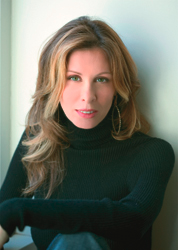A Quote by Sandra Cisneros
I felt a failure because I couldn't sustain myself from what I earned from my writing. My day jobs were what mattered, and it was hard to even get those because universities wouldn't hire me as a real writer.
Related Quotes
Failure's relative. I've always felt, even early on, if I lose the freedom to fail, something's not right about that. It's how you treat failure, too. There's something to learn from it. I've had movies that have failed colossally, so you kind of analyze your failures: What kind of failure was it? A failure because it's misunderstood by others? A failure because you misunderstood it yourself?
Something that bothered people about 'Dawson's Creek' but as a writer, I kind of dug: writing those kids as though they were college grad students. It was fun and liberating and made for a true sort of writer's show. It was a fun year for me, because I got to get out of debt with my first TV job, and I learned a ton.
And as paralyzing and upsetting as all the never agains were, the final leaving felt perfect. Pure. The most distilled possible form of liberation. Everything that mattered except one lousy picture was in the trash, but it felt so great. I started jogging, wanting to put even more distance between myself and school. It is so hard to leave—until you leave. And then it is the easiest goddamned thing in the world.
And I felt more like me than I ever had, as if the years I'd lived so far had formed layers of skin and muscle over myself that others saw as me when the real one had been underneath all along, and I knew writing- even writing badly- had peeled away those layers, and I knew then that if I wanted to stay awake and alive, if I wanted to stay me, I would have to keep writing.
It's not possible to advise a young writer because every young writer is so different. You might say, "Read," but a writer can read too much and be paralyzed. Or, "Don't read, don't think, just write," and the result could be a mountain of drivel. If you're going to be a writer you'll probably take a lot of wrong turns and then one day just end up writing something you have to write, then getting it better and better just because you want it to be better, and even when you get old and think, "There must be something else people do," you won't be able to quit.

































